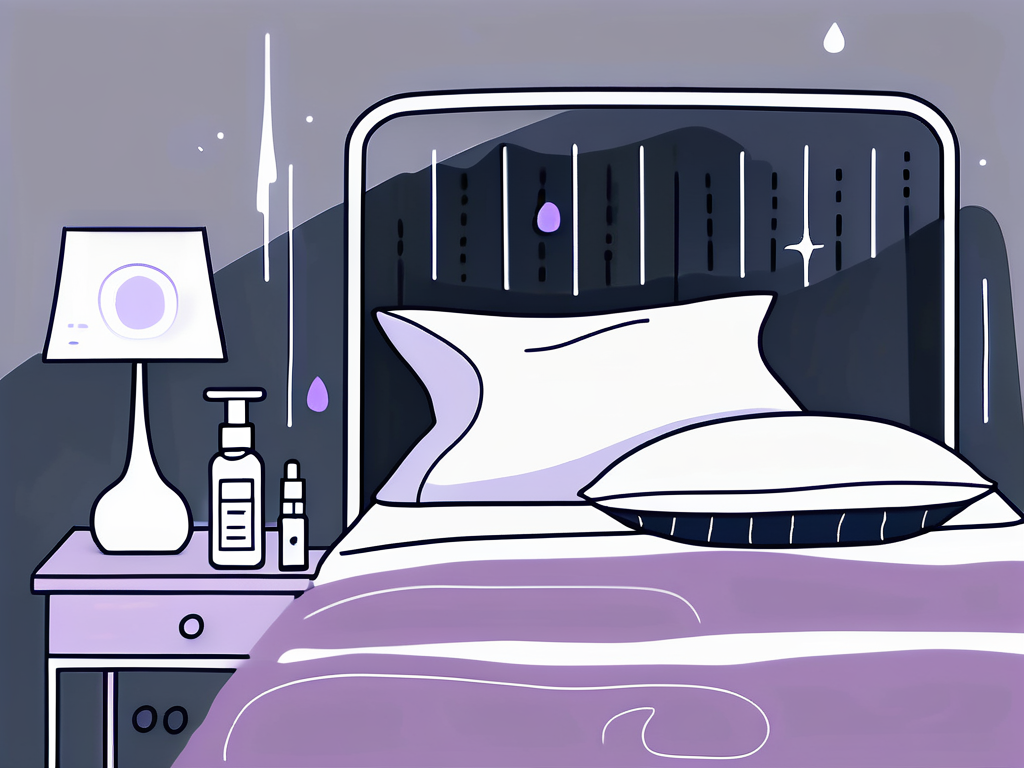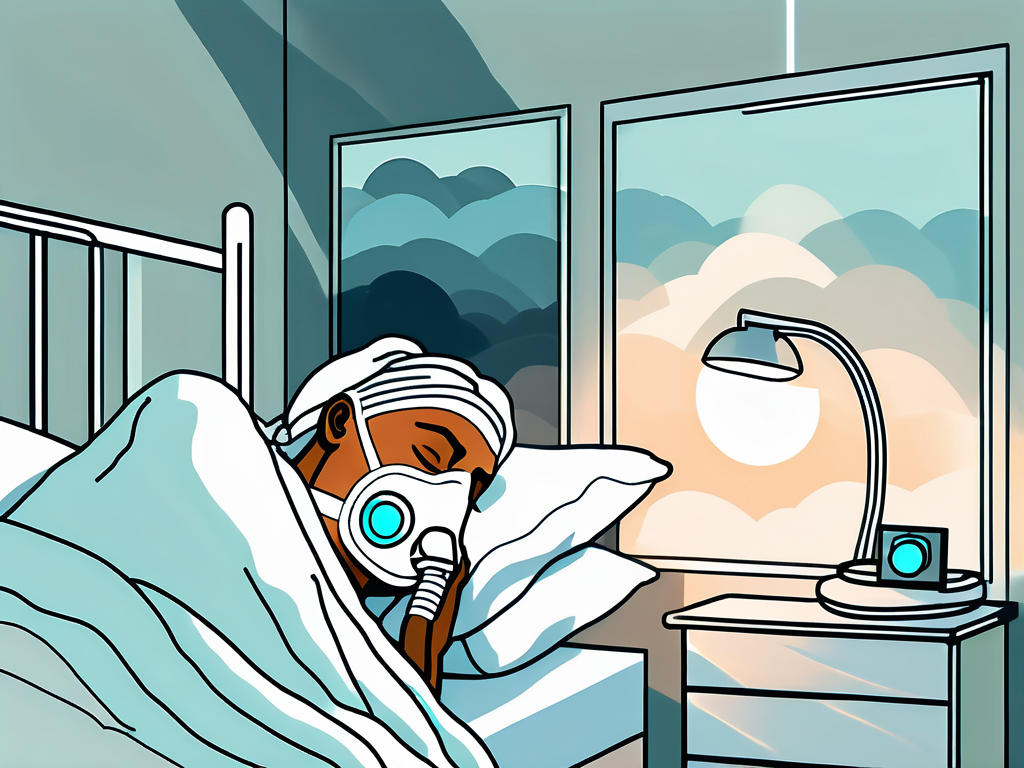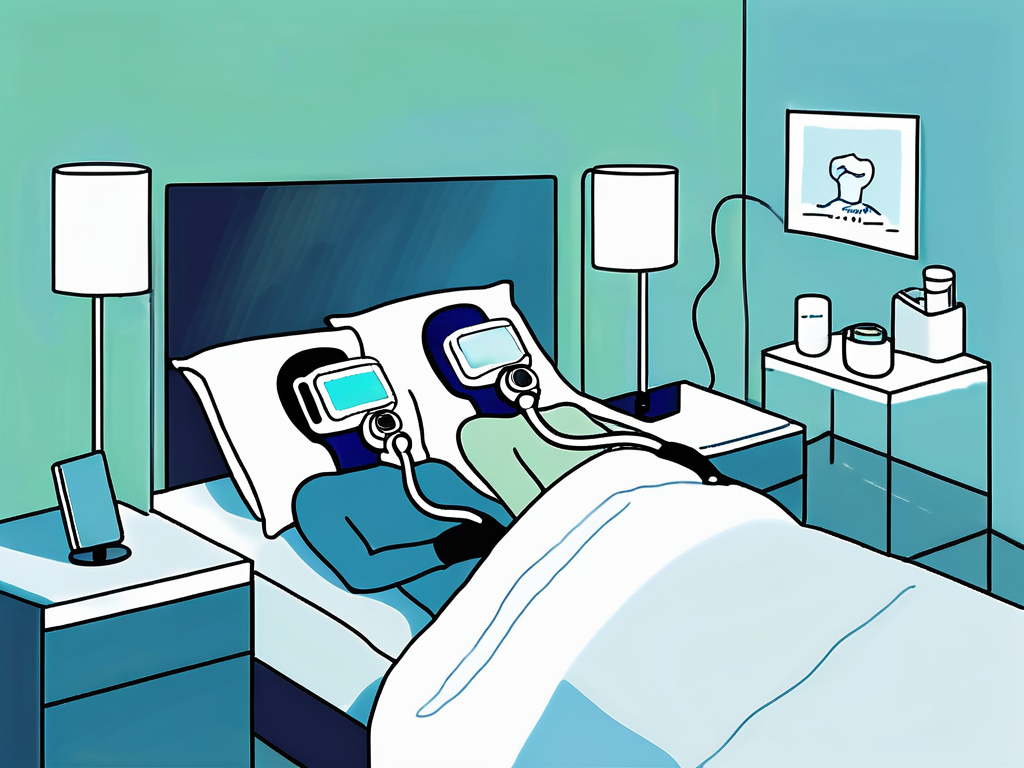In today's fast-paced world, getting a good night's sleep is more important than ever. Unfortunately, many people struggle with sleep disorders that can greatly affect their quality of life. Two common sleep disorders are sleep apnea and bruxism, both of which can disrupt sleep and lead to various health issues. However, there is hope for those struggling with these conditions. By combining the use of mouth guards with Continuous Positive Airway Pressure (CPAP) therapy, individuals can achieve better sleep and improve their overall well-being.
Understanding Sleep Disorders
The Impact of Sleep Apnea
Sleep apnea is a serious condition characterized by interrupted breathing during sleep. These pauses in breathing can occur multiple times throughout the night and lead to fragmented sleep, excessive daytime sleepiness, and other health problems. Sleep apnea is often associated with loud snoring, gasping for air during sleep, and morning headaches.
It is important to note that there are different types of sleep apnea, including obstructive sleep apnea, central sleep apnea, and complex sleep apnea syndrome. Obstructive sleep apnea is the most common type, typically caused by the relaxation of throat muscles, leading to blocked airways. Central sleep apnea, on the other hand, occurs when the brain fails to send proper signals to the muscles that control breathing. Complex sleep apnea syndrome is a combination of both obstructive and central sleep apnea.
Bruxism: More Than Just Teeth Grinding
Bruxism is a sleep disorder characterized by grinding or clenching of the teeth. It is estimated that millions of people worldwide suffer from this condition, which can lead to jaw pain, tooth damage, headaches, and disrupted sleep. Bruxism is often linked to stress and anxiety, but it can also occur as a result of misaligned teeth or an abnormal bite.
Individuals with bruxism may not be aware of their condition until they experience symptoms such as worn-down teeth, jaw muscle discomfort, or tension headaches. In severe cases, bruxism can result in temporomandibular joint (TMJ) disorders, causing further pain and limited jaw movement. Treatment options for bruxism may include wearing a mouth guard at night to protect the teeth, stress management techniques, and dental interventions to correct misalignments.
The Role of Mouth Guards in Sleep Quality
How Mouth Guards Work
Mouth guards, also known as dental splints, are custom-made devices that are worn during sleep to protect the teeth and jaw. They function by providing a cushioned barrier between the upper and lower teeth, preventing grinding or clenching. Mouth guards are typically made from durable and flexible materials, ensuring comfort and proper fit.

Moreover, mouth guards can also help in reducing the loudness of snoring in individuals who suffer from sleep apnea. By slightly repositioning the jaw, mouth guards can open up the airway passages, allowing for smoother breathing during sleep. This additional benefit makes mouth guards a versatile solution for various sleep-related issues.
Benefits of Using Mouth Guards
The use of mouth guards can provide numerous benefits for individuals with bruxism. Not only do they protect the teeth from wear and damage, but they also help reduce muscle tension in the jaw and alleviate associated pain. By wearing a mouth guard, individuals can improve their sleep quality and wake up refreshed and pain-free.
Furthermore, mouth guards can aid in preventing headaches caused by teeth grinding. The reduction of pressure on the jaw muscles and the prevention of excessive tooth wear can contribute to a decrease in tension headaches. This added advantage showcases the multifaceted benefits of incorporating mouth guards into one's nightly routine.
Exploring Continuous Positive Airway Pressure (CPAP) Therapy
The Science Behind CPAP
Continuous Positive Airway Pressure (CPAP) therapy is a highly effective treatment for sleep apnea. It involves wearing a mask connected to a machine that delivers a constant flow of air pressure to keep the airway open during sleep. This prevents the pauses in breathing that lead to disrupted sleep and other health complications.

CPAP therapy works by creating a pneumatic splint for the upper airway, preventing its collapse and maintaining an open passage for air to flow freely into the lungs. This continuous airflow not only prevents breathing interruptions but also ensures that vital organs receive a steady oxygen supply throughout the night, promoting restful and uninterrupted sleep.
Advantages of CPAP Therapy
CPAP therapy has been proven to be extremely beneficial for individuals with sleep apnea. By ensuring a continuous supply of oxygen throughout the night, it helps improve sleep quality, reduces daytime sleepiness, and decreases the risk of associated health problems such as high blood pressure and heart disease. CPAP therapy is also non-invasive and safe, making it a preferred choice for many sleep apnea sufferers.
Moreover, CPAP therapy not only benefits the individual's physical health but also has a positive impact on mental well-being. By alleviating symptoms of sleep apnea such as fatigue and irritability, CPAP therapy can enhance mood, cognitive function, and overall quality of life. The consistent and restorative sleep provided by CPAP treatment can lead to increased productivity, sharper focus, and a greater sense of vitality during waking hours.
The Synergy of Mouth Guards and CPAP
How Mouth Guards Complement CPAP
Combining the use of mouth guards with CPAP therapy can provide a synergistic effect, leading to better sleep quality and improved overall well-being. Mouth guards act as a supplementary measure by addressing the underlying cause of bruxism, reducing teeth grinding and jaw clenching that can interfere with the effectiveness of CPAP therapy. This combination approach ensures a more comprehensive and integrated solution for individuals suffering from sleep apnea and bruxism simultaneously.

Moreover, mouth guards can also help in preventing potential damage to the teeth and dental work caused by bruxism. By creating a protective barrier between the upper and lower teeth, mouth guards not only improve the effectiveness of CPAP therapy but also safeguard the oral health of individuals undergoing treatment. This dual benefit highlights the importance of incorporating mouth guards into the overall management plan for sleep apnea and bruxism.
Potential Challenges and Solutions
While combining mouth guards with CPAP therapy can be highly beneficial, there are some challenges that individuals may face. One common challenge is adjusting to wearing both the mouth guard and the CPAP mask simultaneously. However, with proper guidance from healthcare professionals and regular use, individuals can adapt to the routine and experience the full benefits of this combination therapy.
Another challenge that individuals may encounter is the maintenance and cleaning of both the mouth guard and CPAP equipment. It is essential to follow the recommended cleaning instructions for both devices to ensure hygiene and effectiveness. By establishing a consistent cleaning routine and seeking guidance from healthcare providers on proper maintenance techniques, individuals can overcome this challenge and optimize the benefits of using mouth guards in conjunction with CPAP therapy.
Achieving Better Sleep Quality
Tips for Using Mouth Guards and CPAP Together
To ensure optimal results, it is important to follow certain tips when using mouth guards and CPAP therapy together. Firstly, it is crucial to maintain good oral hygiene by cleaning the mouth guard regularly and storing it properly. This not only helps to prevent the buildup of bacteria but also prolongs the lifespan of the mouth guard, ensuring its effectiveness in protecting your teeth from the damaging effects of bruxism.
Furthermore, individuals should adhere to the recommended replacement schedule for both the mouth guard and CPAP components. Over time, mouth guards can become worn out and lose their ability to provide adequate protection. Similarly, CPAP masks and other components can deteriorate, affecting the performance of the therapy. By replacing these items as recommended, you can ensure that you are getting the most out of your treatment and maintaining the highest level of sleep quality.
Lastly, proper fitting and adjustment of the mouth guard and CPAP mask are essential for maximum comfort and effectiveness. Ill-fitting mouth guards can cause discomfort and even contribute to jaw pain, while poorly adjusted CPAP masks may lead to air leaks, reducing the effectiveness of the therapy. Working closely with your healthcare professional to ensure a proper fit and adjustment can greatly enhance your overall experience and improve the outcomes of the combination therapy.
Monitoring Your Sleep Improvement
Regular monitoring and follow-up with healthcare professionals is vital when using mouth guards and CPAP therapy. This allows for adjustments to be made, if necessary, to ensure the best possible outcomes. Sleep studies, which involve monitoring your sleep patterns and breathing during the night, can provide valuable insights into the effectiveness of the combination therapy and guide further improvements for better sleep quality.
Additionally, feedback from patients plays a crucial role in monitoring sleep improvement. By sharing your experiences and any concerns or issues you may have, healthcare professionals can better understand your individual needs and make any necessary adjustments to your treatment plan. This collaborative approach ensures that you are receiving the most effective therapy and achieving the desired sleep quality.
In conclusion, combining mouth guards with CPAP therapy is a promising approach to address the sleep disorders of sleep apnea and bruxism. By using mouth guards to mitigate the effects of bruxism and CPAP therapy to treat sleep apnea, individuals can achieve better sleep quality and experience improved overall well-being. With the right guidance and proper adherence to recommended practices, the combination of mouth guards and CPAP therapy can provide a synergistic solution for those seeking better sleep and a healthier life.













